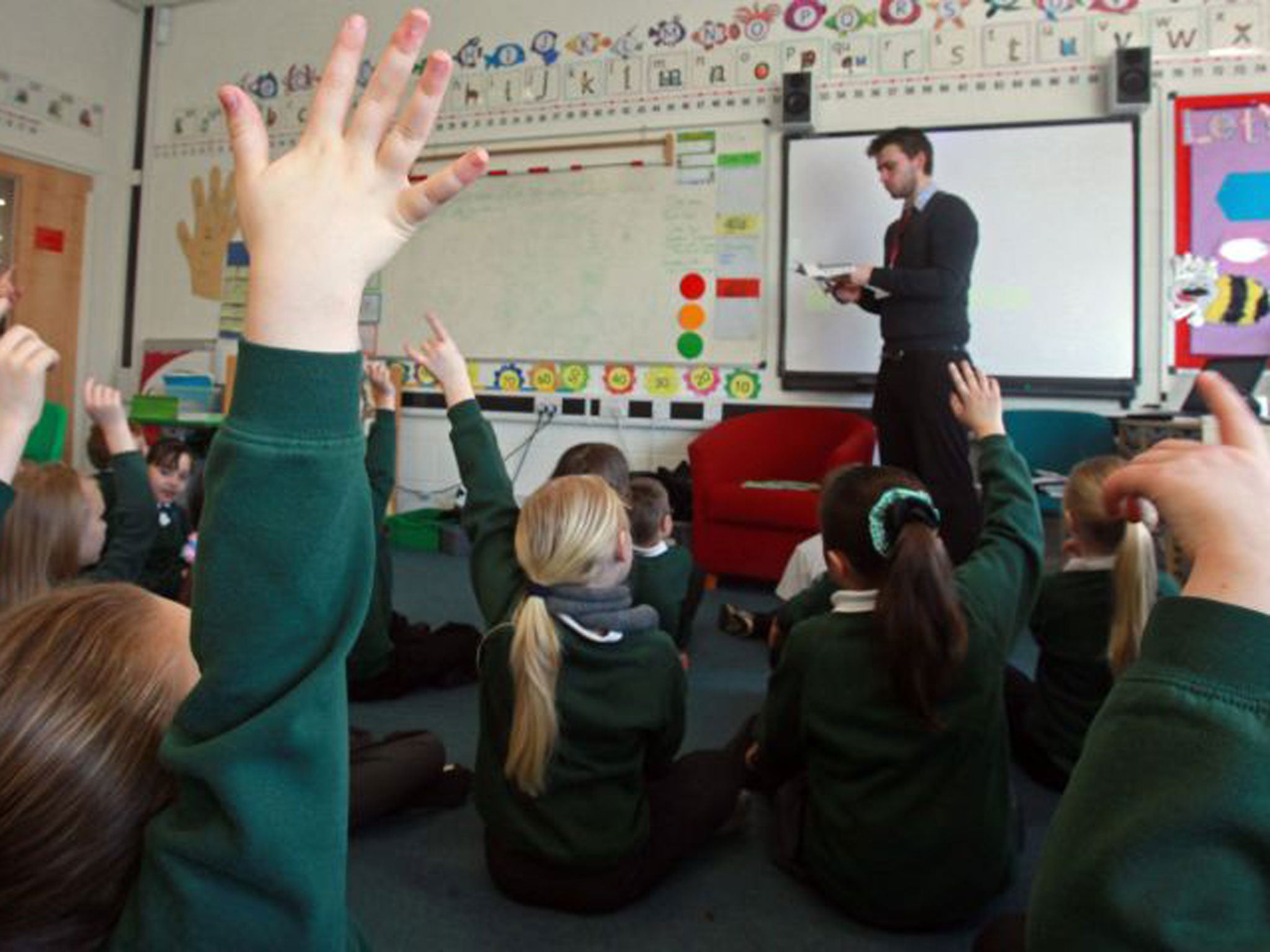Revealed: Big rise in number of children in classes of more than 30 pupils
Education Department figures reveal a 50% jump in larger classes for five- to seven-year-olds

The number of five-to seven-year-olds taught in classes of more than 30 pupils has risen by 50 per cent in the past year, new figures from the Department for Education reveal.
They show that 71,935 children are taught alongside 30 other pupils – compared with just 47,290 a year ago and 28,875 four years ago, prompting claims from teachers that ministers are failing to address an acute shortage of school places.
Outlawing classes of more than 30 pupils was one of Labour’s five key election pledges when it came to power in 1997. Since then, though, the number of “get out” clauses – allowing schools to take in extra pupils per class – has risen, particularly in the last year.
The most common reasons for exemption are the arrival of a new child mid-year – often as a result of appeals against the refusal of a place being upheld (42.6 per cent of exemptions) and pupils, often the children of migrants, arriving in an area mid-year (31.1 per cent of cases).
Russell Hobby, general secretary of the National Association of Head Teachers, said the figures showed the impact of the “baby boom”. “We haven’t got enough new classes and schools to cope with it,” he said.
Critics have claimed the Government’s new free schools have not always been opened in areas with the greatest need for extra places.
Christine Blower, general secretary of the National Union of Teachers, said: “The rise in children born in England between 2001 and 2011 was the largest 10-year increase since the 1950s.
“Instead of local authorities being funded to address the primary place shortage that is gripping many parts of the country, some councils are instead facing a growing and excessive surplus of unnecessary secondary school places because the Secretary of State [Michael Gove] has approved new secondary schools in local areas in which there is demonstrably no need. Until Government takes urgent steps to address this growing crisis it will be extremely difficult to maintain a limit of 30 children in key stage one classes [for five- to seven-year-olds]. This will have a direct impact on the teaching and learning of children.”
Stephen Twigg, the shadow Education Secretary, said: “David Cameron and Michael Gove have created a crisis in primary school places with an additional 250,000 needed by 2015.
“They are opening new secondary schools in areas where there are surplus places whilst the need for primary places, as these figures show, couldn’t be greater. At a time when money is tight and every pound matters, the priority should be creating schools in areas where need is greatest.”
Mr Hobby added: “A small increase in class sizes won’t be the be-all and end-all for a school in its attempts to raise standards, but a maximum size is more essential with little ones – to stop them running around.”
A spokeswoman for the Department for Education said: “Children are only permitted to join classes of 30 pupils in exceptional cases, if for instance they are in care or from military families. Classes often fall back naturally to 30 over a year or two.
“We are spending £5bn by 2015 on creating new school places – more than double the amount spent by the previous government in the same time frame. We are also building free schools and letting the most popular schools expand to meet demand from parents.” At least 190,000 extra places will be up and running by September.
Subscribe to Independent Premium to bookmark this article
Want to bookmark your favourite articles and stories to read or reference later? Start your Independent Premium subscription today.

Join our commenting forum
Join thought-provoking conversations, follow other Independent readers and see their replies